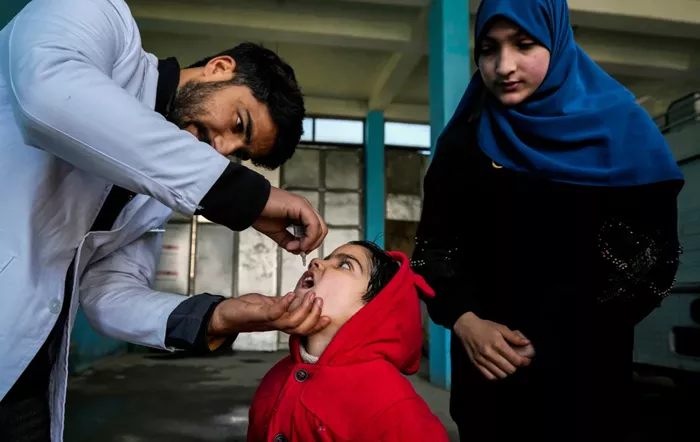The Covid-19 pandemic, while accelerating the development and distribution of coronavirus vaccines, has led to a significant decline in routine vaccination rates worldwide. Recent data from the World Health Organization (WHO) and the United Nations International Children’s Emergency Fund (UNICEF) indicate that global immunization efforts have not yet rebounded.
Dr. Katherine O’Brien, WHO’s Director of Immunization, Vaccines, and Biologicals, described the situation as a “historic backslide.” She emphasized the urgent need to reach children who missed vaccinations during the pandemic and to enhance immunization services beyond pre-pandemic levels.
The 2023 immunization coverage report from WHO and UNICEF is the most extensive dataset on vaccination trends, analyzing data from 185 countries. It uses the third dose of the diphtheria, tetanus, and pertussis (DTP3) vaccine, recommended for one-year-olds, as a global benchmark for immunization coverage.
Findings show that the progress made before the pandemic has stagnated. DTP3 coverage worldwide stood at 84% in 2023, unchanged from 2022 and down from 86% in 2019. This decline poses challenges to the Immunization Agenda 2030 goal of achieving 90% coverage for essential childhood and adolescent vaccines. The report cites ongoing disruptions to healthcare services, logistical hurdles, vaccine hesitancy, and inequities in access as contributing factors.
Additionally, the number of children who received no doses of DTP3 increased by 600,000 from 2022 to 2023, resulting in 2.7 million more children being un- or under-immunized compared to pre-pandemic levels. “Today’s release highlights that we are off track and need to accelerate efforts to meet this challenge,” stated Dr. Ephrem T. Lemango, UNICEF’s Associate Director for Health.
Despite these challenges, some regions have seen positive developments. The African region exhibited the most progress in vaccination coverage last year, while countries like Bangladesh, Indonesia, Brazil, and Nigeria showed notable recovery efforts post-pandemic.
The report also noted a 7% increase in HPV vaccination among girls, nearing pre-pandemic levels. However, coverage remains below the 90% target necessary to eliminate cervical cancer as a public health issue, reaching only 56% in high-income countries and 23% in low- and middle-income nations.
With regard to measles, WHO warns that global immunization efforts have saved an estimated 154 million lives over the past 50 years, with measles vaccination being a crucial factor. However, the report reveals that measles vaccination coverage remains insufficient to prevent outbreaks, with nearly 35 million children lacking adequate protection. The resurgence of measles cases, including in the U.S., is attributed to low vaccination rates.
“Measles outbreaks continue to rise as measles vaccination coverage stalls,” Lemango warned. In 2023, confirmed measles cases soared to over 300,000, almost tripling compared to 2022.
The report underscores that over half of the unvaccinated children reside in conflict-affected countries, even though these areas account for only 28% of global births. Nations experiencing significant declines in vaccination coverage since 2019 include Sudan, Yemen, and Afghanistan.
Dr. O’Brien emphasized the importance of protecting children in conflict settings, where infectious diseases pose heightened risks. While some conflict-affected regions like Ukraine have seen improved vaccination rates, others like Gaza have witnessed significant reductions.
The U.S. maintains vaccination rates between 95% and 98%, reflecting good healthcare access. However, Lemango cautioned that without global vaccination equity, the risk of outbreaks persists.
In response to declining vaccination levels, WHO and UNICEF launched The Big Catch Up initiative in April 2023, aiming to enhance childhood immunizations and bridge the gap between pre- and post-pandemic efforts. Achieving these goals will require innovation, collaboration, and substantial investment, according to the Immunization Agenda 2030 Partnership Council.
“Immunization stands as one of humanity’s greatest achievements,” Lemango concluded, highlighting the need for ongoing commitment to vaccination efforts globally.
[inline_related_posts title=”You Might Be Interested In” title_align=”left” style=”list” number=”6″ align=”none” ids=”10800,10797,10789″ by=”categories” orderby=”rand” order=”DESC” hide_thumb=”no” thumb_right=”no” views=”no” date=”yes” grid_columns=”2″ post_type=”” tax=””]

































